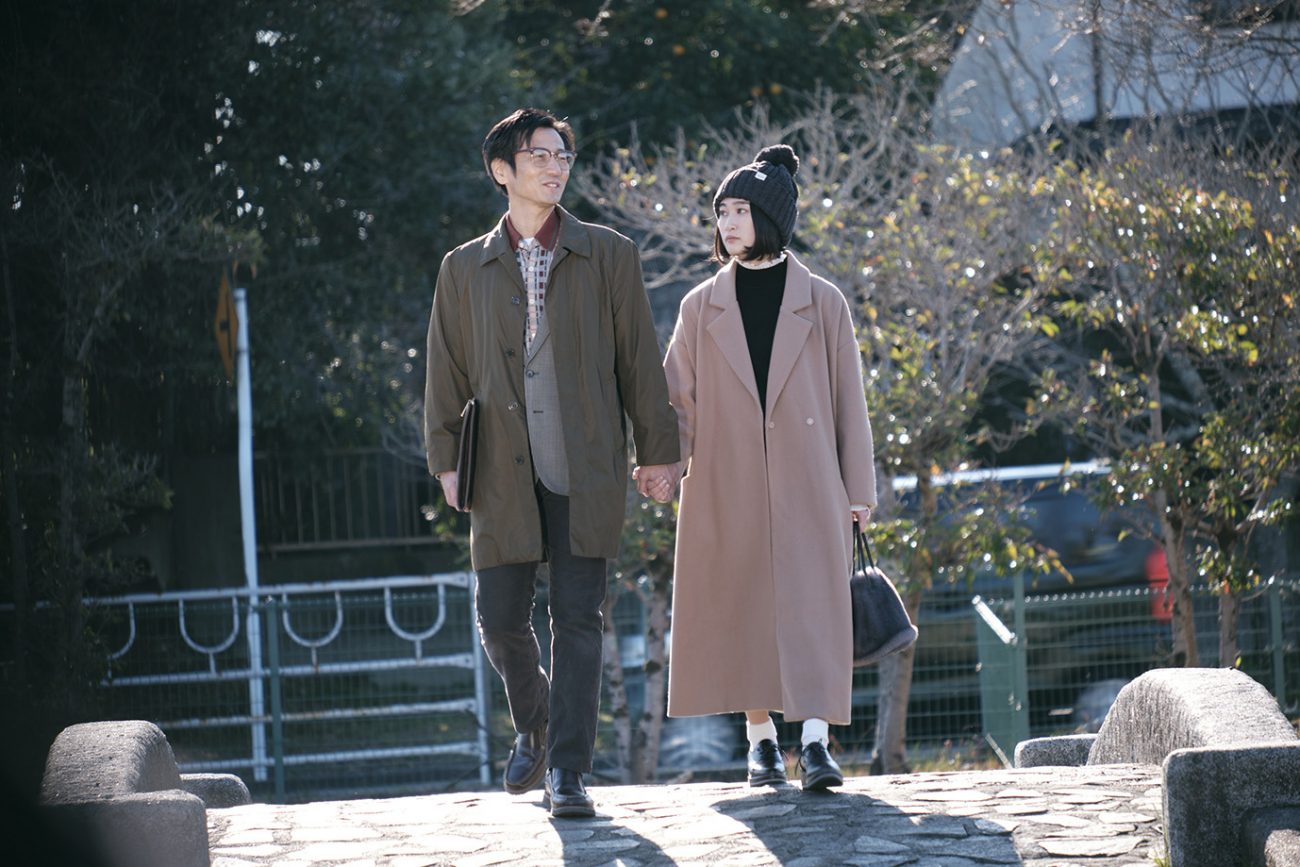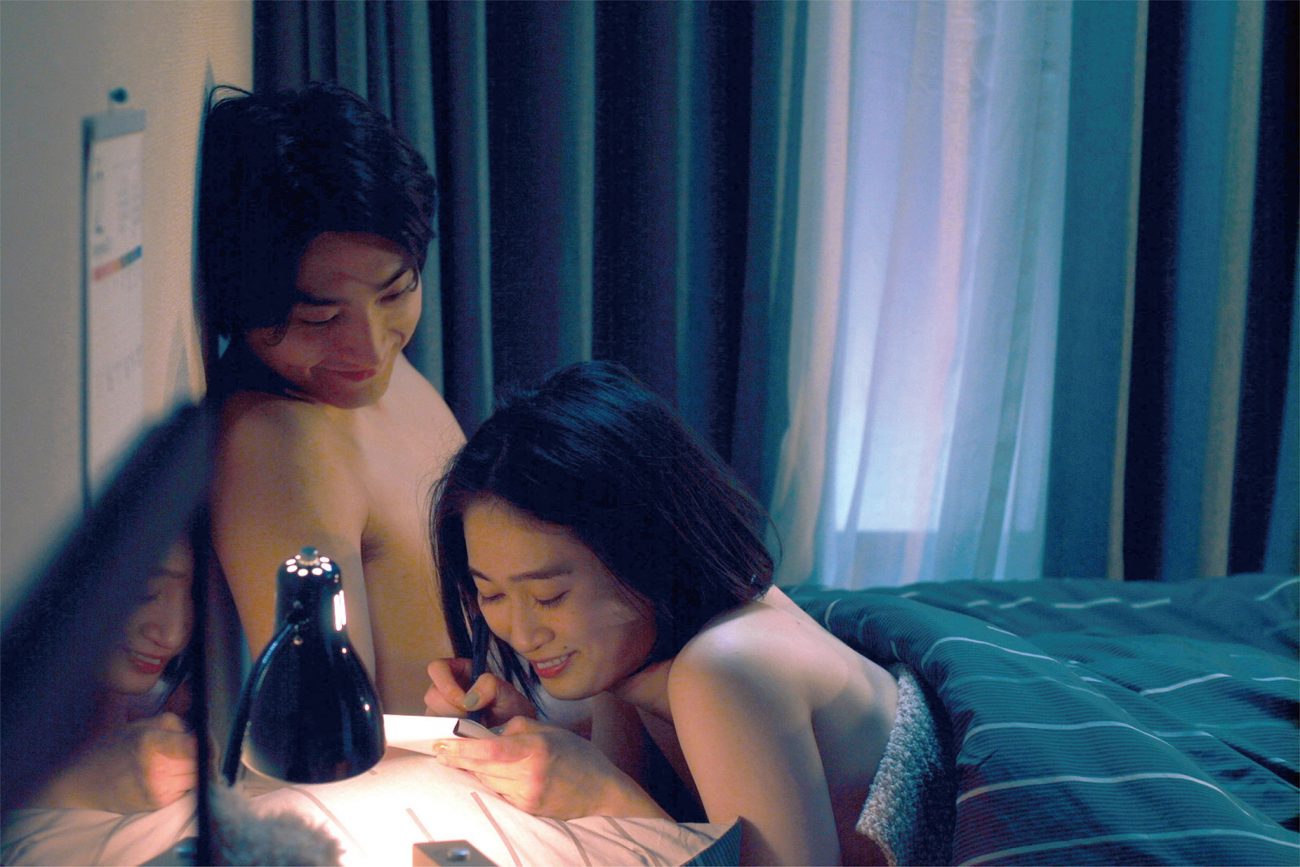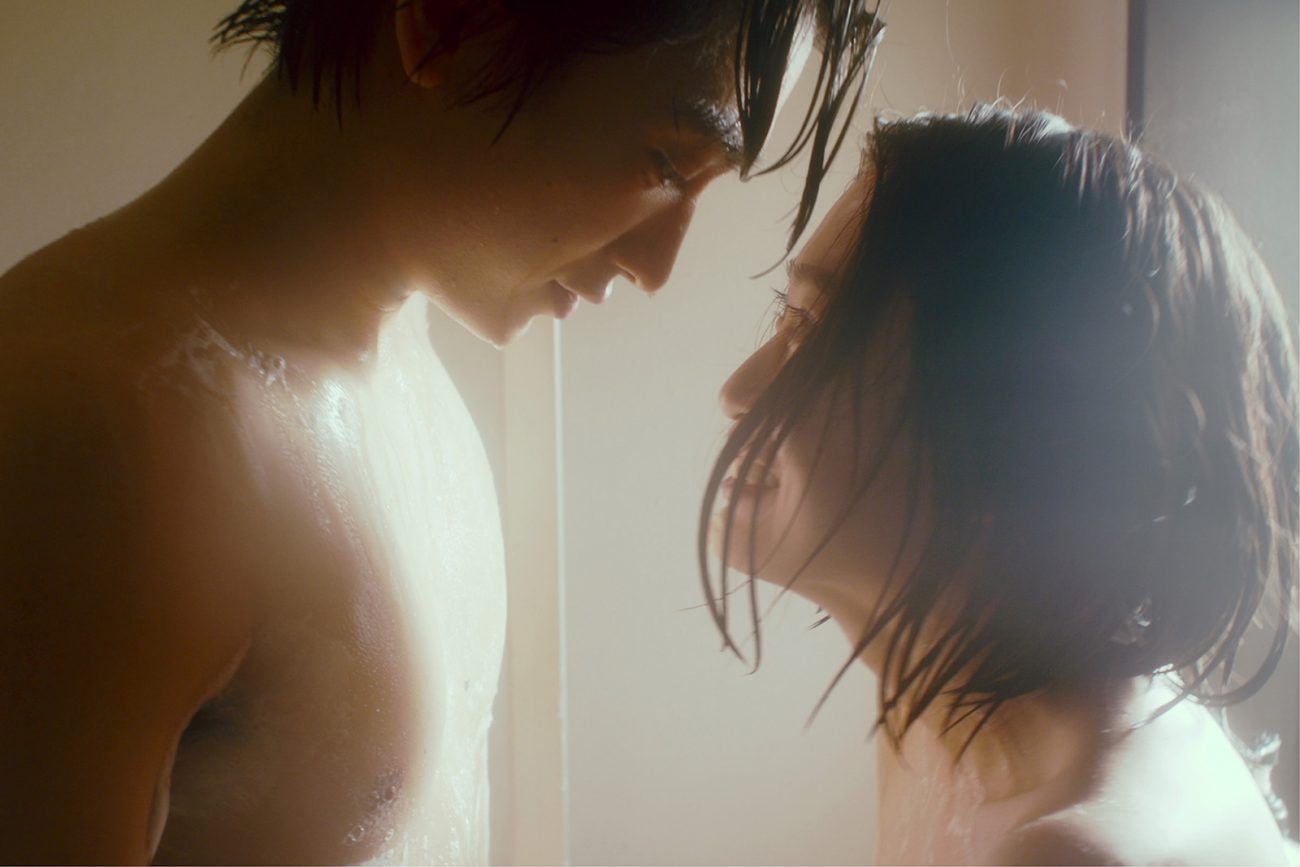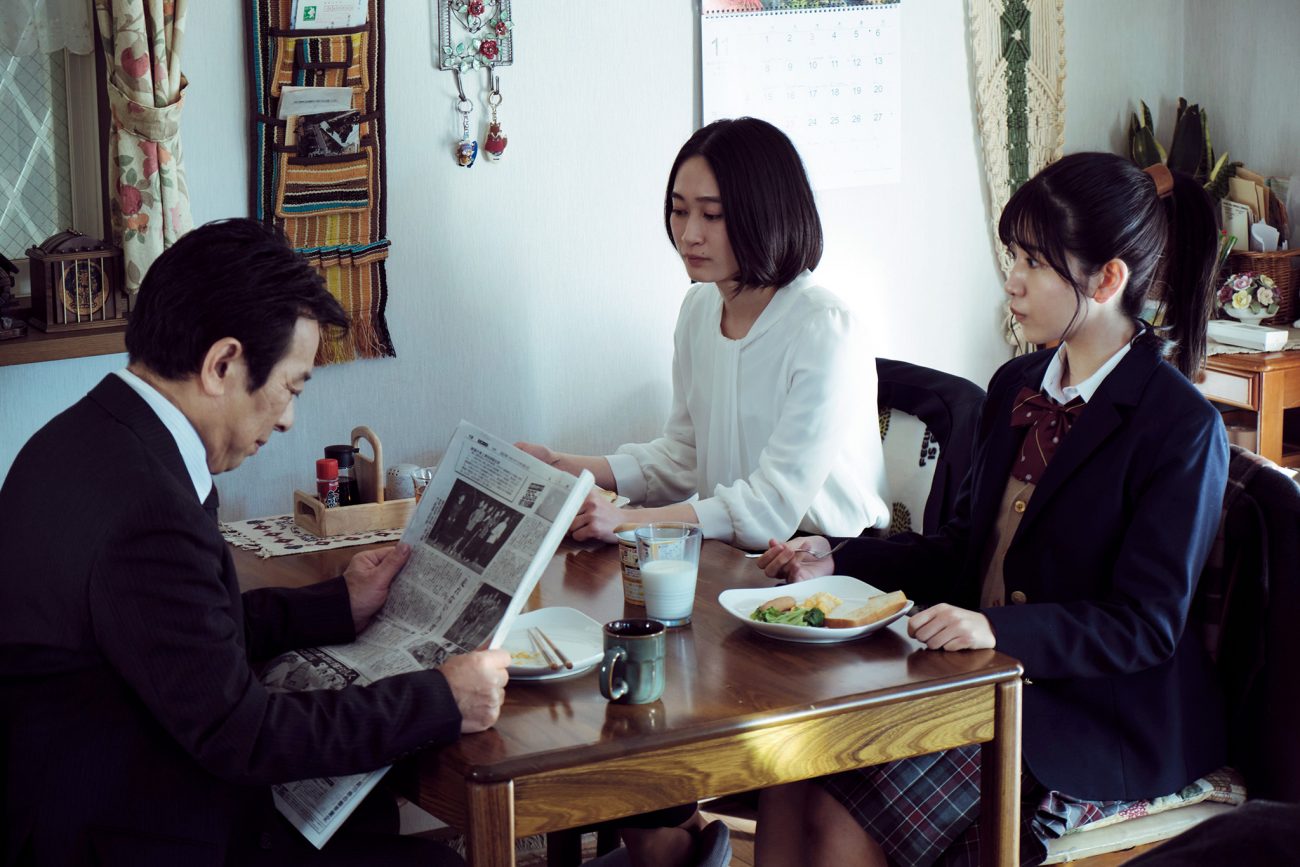First appearing in the mid 1960s, pinku eiga (also known as “pink films”) is a uniquely Japanese genre most comparable to the sexploitation or erotica genres in the West. Involving sex, nudity, and taboo subject matter, these low budget films were made by independent and major studios alike. Japan’s oldest studio, Nikkatsu, pivoted to mostly making pink films in the 1970s with the Roman Porno series. Directors were given higher budgets than the usual pink film and full artistic freedom as long as they fulfilled a sex scene quota.
To celebrate 50 years of Roman Porno productions, Nikkatsu embarked on a project to relaunch the series with a focus on appealing to female audiences. Leading the first of the revitalised ROMAN PORNO NOW series is Daigo Matsui’s Hand, an adaption of Nao-Cola Yamazaki’s novel of the same name. Director Matsui’s trademark ability to tease out the complexities of human relationships and the interiority of young women is again captured in Hand. With its nuanced portrait of a young woman’s sexual explorations and psyche, the film is a fitting entry in this new era of Roman Porno films that aim to put female agency first.

In Hand, Sawako (Akari Fukunaga) is a young office worker who enjoys observing and photographing older men. This extends to her sexual preferences, where the much older men she sleeps with often find their way into her photo albums. Outside of her sex life, Sawako gets along well with her younger sister Rika (Natsuko Obuchi) despite a strained relationship with her father (Akio Kaneda). When she becomes romantically involved with a man of the same age, Mori (Daichi Kaneko), Sawako unfolds a new chapter in her journey of self-discovery.
Before Hand’s North American premiere at Japan Cuts 2023, we talked to director Daigo Matsui about directing a pinku film for the first time, bringing the genre into modern times, and why he is interested in female-driven stories.
The below interview has been edited for clarity.
How did this project to make a “modern” Roman Porno come about? How did Nikkatsu come to approach you, and what made you decide to take on the project?
So this being the 50th anniversary of Nikkatsu’s Roman Porno [productions], the producer approached me to see if I’d be interested in making this film. My films have mostly been targeted towards teenagers and young people, so this was a challenge for me, to create something in a new genre. As a filmmaker, to be able to go up against filmmakers like Director [Teruo] Ishii and Director [Shinji] Somai, that was also a real challenge for me.
Hand is very much a Roman Porno film done from the perspective of the female protagonist Sawako. It is about her exploring her body and sexuality. I understand that it was based on a book, so how did this book get adapted? Were there many changes from book to screen?
The producer approached me with the book, and it’s pure literature, it’s not really erotic fiction at all. At the same time, I could really relate to how Sawako was feeling, and how she was in all her personal relationships etc. To transform the story from literature to a script for a Roman Porno film, there’s a rule that you have to have a sex scene every ten minutes. So that’s where I had to try to adjust the story accordingly.

The sex scenes in the film are sometimes awkward, silly, impulsive and spontaneous, very much like life. Sex is also portrayed as a very everyday act. What was your intention behind the different sex scenes in the film?
In previous Nikkatsu Roman Porno works, it was very obviously targeted towards men. So the feelings of the female characters were very much neglected in any sex scene. In creating this film, with the sex scenes, because I had to have them, I wanted them to be more for the female characters so that [the film] could set itself apart from any previous Nikkatsu Roman Porno works.
One of the most memorable scenes in the film is where Sawako’s younger sister calls Sawako while having sex. Although most of the film is quite calm, this is one time where it is a little bit over the top. As it is quite an out of ordinary situation, how did you direct this scene? Were you worried that it would come across as strange?
The producer was a little concerned at first when we were developing the script that this was a little too different from the rest of the film. But the character of Rika, the sister, has a very different personality from Sawako, and Rika loses her virginity so nonchalantly, so it’s a very different experience for her. She’s very outgoing, and I wanted to show that comparison. Leading up to that scene, there were many quiet, emotional scenes, so I wanted to change the pace a little bit.
The actress Akari Fukunaga who plays Sawako is very good in this film. Can you talk about how you directed her, why you chose her for this role, and what you wanted her to show as Sawako?
We had a very thorough audition process. It wasn’t an ‘acting audition’. We just talked and I asked the actresses a lot about how they felt towards men around their father’s age. And Fukunaga-san, when asked about how she feels about older men, I kind of saw Sawako in her, and that’s why I wanted her to portray Sawako. I was very careful in directing her as Sawako is a character that has lost herself. She’s been labelled as a “young woman” or “older sister”. She’s had all these labels, but she’s lost the opportunity to be herself, to be honest with her own feelings. Does she really like the character Mori? So I wanted to make sure that the journey of the character to find herself again was thoroughly depicted.

Speaking of the character of Mori, Akari Fukunaga had very good emotional chemistry with the actor Daichi Kaneko in the film. Did you audition the actors together to see what their chemistry would be like?
In terms of auditioning together, the actress who played Rika, the sister, they auditioned together. But for Mori, for Kaneko-san, he has had experience in other works doing sexual scenes, so I thought it would be easier to have someone who’s experienced it before to be in this film, so I cast him. But they did not audition together.
Seeing as how Daichi Kaneko had experience with sex scenes, what about Akari Fukunaga?
She had no experience before in doing sex scenes.
How did she feel about these scenes? I understand that some actors are very game to do such scenes as they feel it is a challenge for them as actors, but some are naturally uncomfortable due to the vulnerable nature of such scenes.
Obviously I couldn’t speak for her as I don’t know how exactly she feels but when we auditioned her, we were very clear about the subject matter, so she knew what she would be doing going into the film. And during the filming process, she didn’t show any resistance or discomfort in filming these scenes, so that was good.

The father and daughter relationship is one of the most interesting parts of the film. I think there are also many ways to interpret this relationship and how it affects Sawako. What is your feeling about this relationship?
When the producer brought the book to me and when I read the book, that was the part that I was drawn to the most, because personally, I have a sort of estranged relationship with my own father and he passed away, and I was not able to fix that relationship when I lost him. So that sort of feeling of loss and regret, that complex I had towards a father figure, that’s where this story starts for Sawako, and I was very interested in portraying that story. In the book, there’s more detailed descriptions of Sawako’s childhood, and how she was loved when she was born, but then her younger sister is born, and then the parents’ love sort of shifts towards the younger sister, and she becomes the ‘older sister’, and that’s how things start to go wrong. But I wanted to make sure that by the end of the film, they [Sawako and her father] call each other by their names, and they look into each other’s eyes, and that’s where I wanted the film to end, so that’s my inspiration.
You’ve said that you hope women will enjoy Hand since most Roman Porno films in the past were mostly for men. Have you had any feedback yet from women about the film?
Yes, most Nikkatsu Roman Porno films in the past were targeted toward men and I wanted women to see [this film], and they did come, and I did get feedback that what Roman Porno is has changed for them. Or that Sawako’s feelings were relatable to them, so I was very happy to hear that.

Top to bottom: Wonderful World End (2014), Our Huff and Puff Journey (2014), Japanese Girls Never Die (2016)
You’ve actually explored the inner lives of girls and young women quite often in your films, such as in Wonderful World End (2014), Our Huff and Puff Journey (2014) and Japanese Girls Never Die (2016). What is it about the stories of girls and women that interest you?
I think it’s probably the fact that I’m a man and I don’t fully understand how women feel, so it’s kind of a mystery, right? But I also felt that there aren’t a lot of films that explore these feelings, and there’s an idea that if you’re going to portray women’s feelings, then women should make that story. But I think it’s ok to have a story where because we are not able to fully understand it, we want to chase after that mystery. We want to try to understand it. And that’s the challenge for me, so that’s why I make that sort of film.
I’ve read that you said you would be working in the romance genre next again. What is it about this genre that appeals to you?
The biggest attraction of the romance genre to me is that it’s so vague. It’s not clear-cut. It’s not like an incident happens, and you have to solve a problem, or mystery, or that you have to save somebody. There’s no big ‘right thing to do’ in the romance genre. It’s just based on the feeling that, “I like this person”, so it’s kind of very vague, and you have to be honest to that feeling. So that’s why I am interested and attracted to this genre, and in trying to portray that feeling.
What would you like to explore in the future in your films? Are there any particular subjects or other genres that you would like to try to portray in your works?
What do you think I should try?
I’m not sure, because it’s about what you’re interested in, and actually I really like the subjects that you’ve been exploring. It is true that not many people do stories about the inner lives of teenage girls, such as in your earlier work. And then with your more recent work, you explore the lives and relationships of young women in their mid to late 20s. I can relate to these subjects, so I’m interested to see what your next project is.
Actually there are a lot of things that I would love to work on, but one thing that stands out to me is ‘family’. I haven’t really worked on that subject before, so that’s something I’ve always wanted to try out. Another thing is that I love trying new genres, so maybe fantasy, or horror, where it’s less about personal feelings and how you think. If I put myself in that situation, what kind of story would come out? I’m interested to find out.
Hand is playing as part of Japan Cuts 2023 in New York, running from July 26 – August 6. Filmed in Ether would like to thank director Daisuke Miyazaki, Japan Society and translator Tomoko Takedani Sater for their part in making this interview happen.
